C+ | An arms deal devolves into a warehouse shootout. Directed by Ben Wheatley Starring Brie Larson, Armie Hammer, and Sharlto Copley Initial Review by Lane Davis |
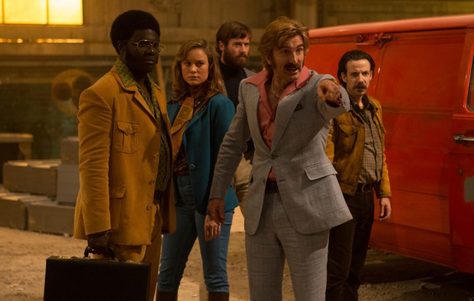
 Only apple pie and John Denver come close to being as quintessentially American as guns, and “Free Fire” gives us plenty of two out of three. The night before watching “FF” I watched the first “John Wick” (because I’m often late to some parties); a highly stylized action movie with plenty of action and gun violence. I enjoyed it very much. But the violence in “Wick” was so coordinated and scripted, as it should be, that it left no illusions that it was comic book fantasy. Two shots to the gut, one to the head. Bam. That’s the assassin’s signature in movies and books.
3 Comments
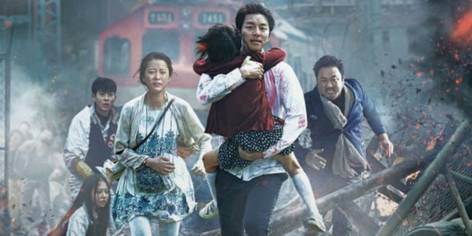 I’ll start with a question: what is the quintessential summer movie? For me, two films come to mind—“Jurassic Park” which I saw when I was 12 and was one of those cinema experiences that make you fall in love with going to the movies. The second was “Speed,” which came out the next summer and which I think I saw at least three times in the theater and I definitely owned on VHS. I start with this question because I first heard about “Train to Busan” about a year ago on NPR. They ran a story because “TtB” is, apparently, the quintessential Korean summer movie. It’s the highest grossing Korean film in that country’s history and, according to the NPR story a year ago, almost 1/5th of the whole South Korean population had seen the film, which is a pretty remarkable number. I was, at first, reluctant to pick another Korean film since we’ve already had “Okja” in our queue this round, but I really wanted to watch a summer movie, and so why not watch one of the most successful ones in recent years that so few in the US have seen?
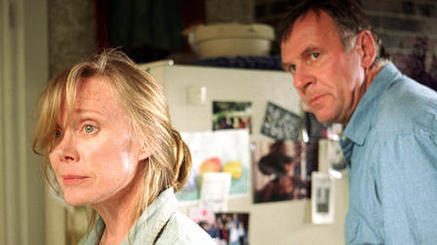 Oh, the New England grief film. With “Manchester By the Sea” garnering all the acclaim it did this year, perhaps this film type deserves its own genre category. It’s a good bet that if you’re a filmmaker and if the premise of your film is that two parents face the untimely death of their children while living in MA, CT, NH, VT, or ME, you’re going to get funding and maybe even a few nods from Academy members who grew up on the North Shore and are still working through their repressive Yankee childhoods.
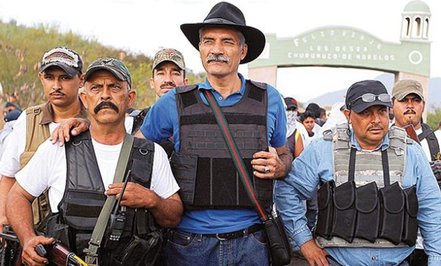 The War on Drugs began in 1971 when Richard Nixon went on television and announced that drug abuse was public enemy number one. As it turns out, the greatest enemy in the war on drugs may not be the drugs themselves, or maybe not even the people that perpetuate the buying and selling of these substances. Instead, perhaps the greatest enemy—for sure the greatest disservice to the people of North America—has been the stubborn over-simplification of an incredibly complex situation. The problem is organizationally complex; governmentally complex; and as this week’s film, “Cartel Land” shows, this ongoing (almost) 40 year war is as much a problem of the complexity of human nature as anything else.
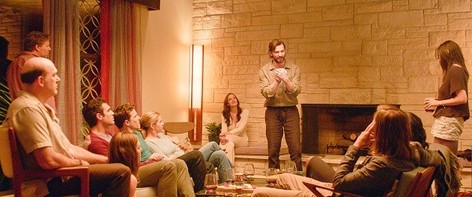 “The Invitation” is a slow simmering pot of a film that rewards the patience of those that stay to watch it boil over. It’s a film that relies on mood, shadow, and atmosphere; sticking with it may be hard, because like any terrible party, you might want to find an excuse to leave. I resisted the urge to break the watching of the film up into two or more segments and I’m glad I did. Once the final port was poured, the uncomfortable dysfunction of the first hour and twenty minutes finally erupted into the chaos you knew had been brewing at the molecular level. Suspicions are confirmed and the viewer finds a perverse satisfaction in finally being able to say, “I knew that was going to happen!” |
AuthorsJUST SOME IDIOTS GIVING SURPRISINGLY AVERAGE MOVIE REVIEWS. Categories
All
Archives
April 2023
Click to set custom HTML
|